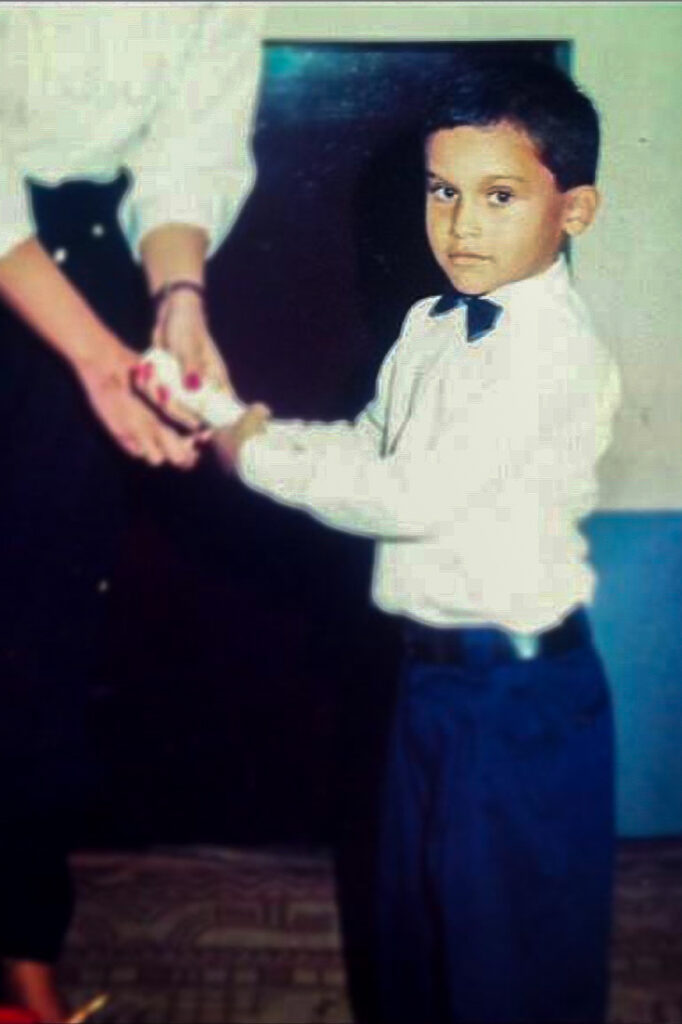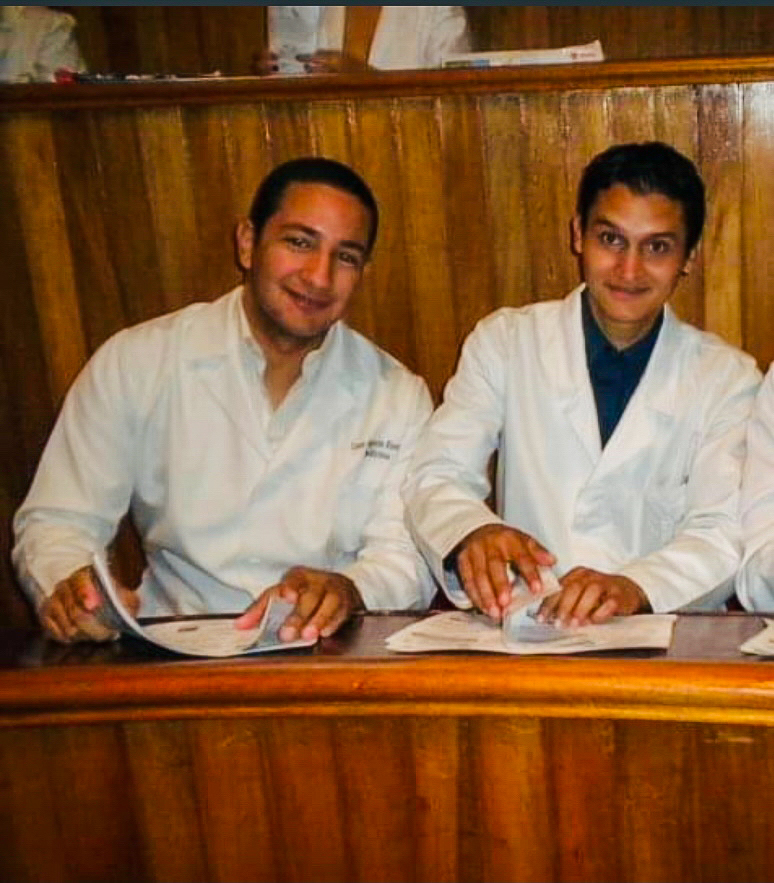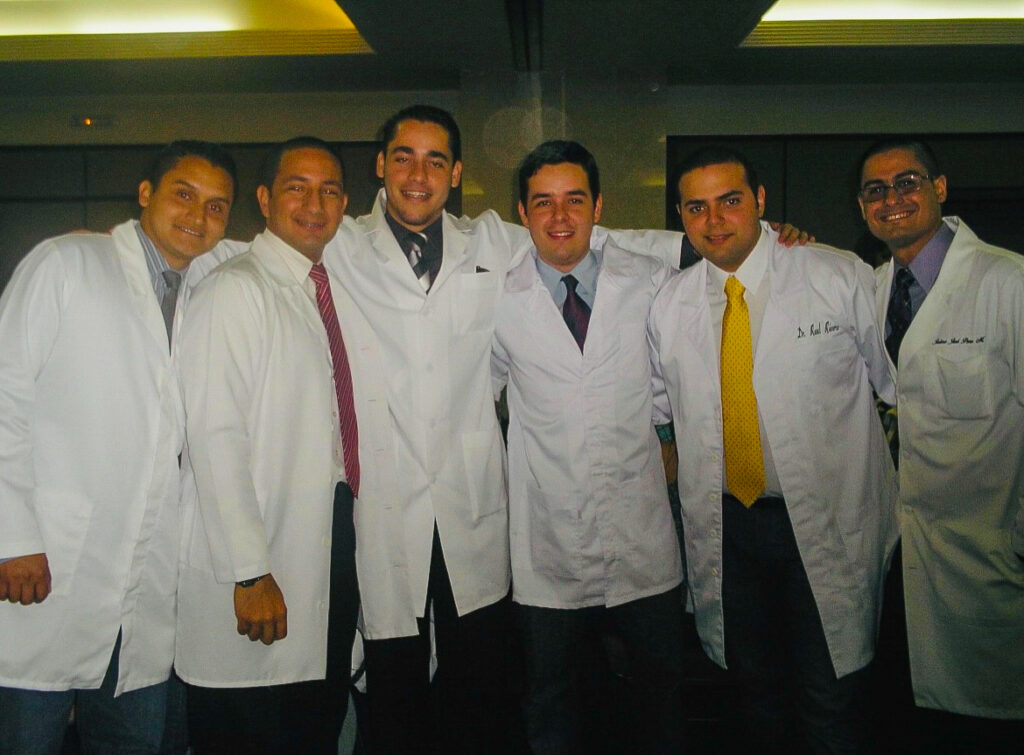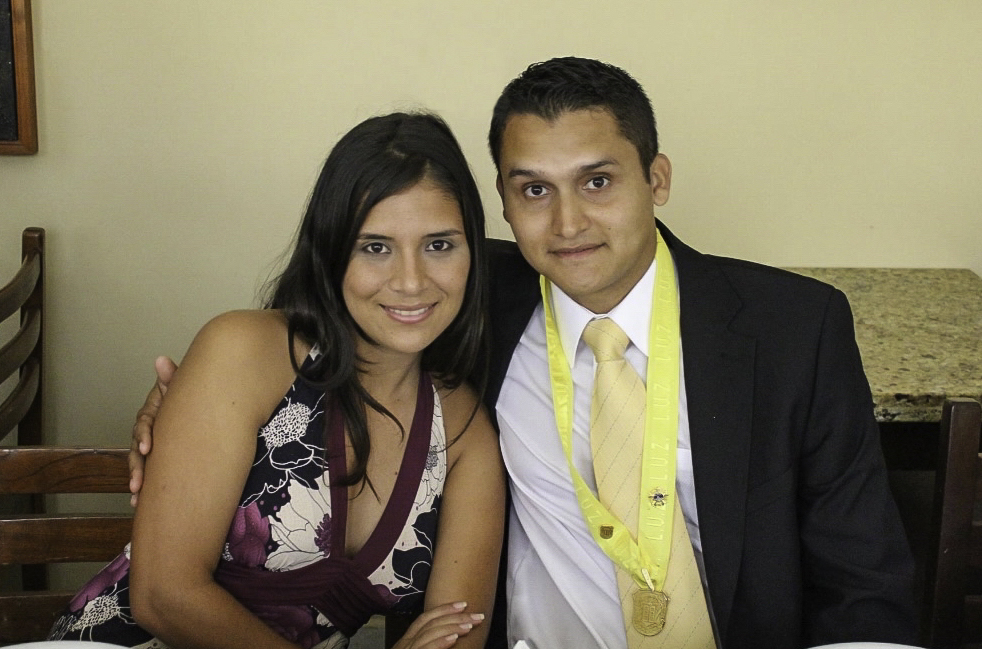Javier Rincón, MD, is a second year resident in the Department of Otolaryngology at Washington University. A personal loss as a child in Venezuela sparked a passion for medicine and caring for others. In celebration of National Hispanic Heritage Month, Rincón shares his journey to becoming an ENT surgeon.
What was your childhood like?

I was born and raised in the small town of Bocono, Trujillo State, Venezuela. It is known as the garden of Venezuela, as our Liberator Simón Bolivar baptized it, for the beauty of its mountains and the variety of its flowers. I had a great childhood with my brother Jorge Luis under my parents’ guidance. My mother Aura Cira was an outstanding elementary school teacher, and my father Luis was a baseball instructor. He taught me how to play baseball when I was young. My mother passed away when I was 14 years old, and at that time we moved to a larger city- Maracaibo, Zulia State – the Land of the Beloved Sun.
When did you realize you wanted to become a doctor?
Losing my mother to ovarian cancer when I was 14 sparked an unrelenting desire to learn more about the human body and how this knowledge could be used to help others during their suffering. This curiosity turned into a passion that helped me secure a coveted teacher’s assistant position in anatomy during my first year of medical school. I developed a particular fascination with the complex anatomy of the head and neck. I feel very fortunate to be the first medical doctor in my extended family.

What did you do after medical school?
After I obtained my medical degree, I had to do a mandatory rural practice for one year, so I worked as a general practitioner in the small town of San Ignacio. I was able to assist patients during labor and delivery and take care of both pediatric and adult patients. After that assignment, I joined a general surgery residency program at the military hospital of Maracaibo.
Why did you decide to come to the United States?
While in the midst of my general surgery training in Venezuela, the political situation began to crumble. I made the difficult decision to leave my country to pursue a surgical education in the United States.

Where do you see your career headed after you graduate from residency?
After I become an academic otolaryngologist, I would like to pursue a fellowship in either head and neck surgery or facial plastic surgery. I am excited for all the opportunities that lie ahead.
I feel extremely grateful and proud of the Venezuelan medical education system. My home university- La Universidad del Zulia – gave me all the necessary tools under the guidance of brilliant mentors. I think the primary difference between the medical practice in Venezuela and the US is the access to medical resources and technology that unfortunately we do not have in my home country.


